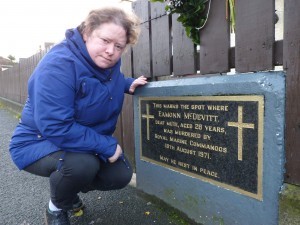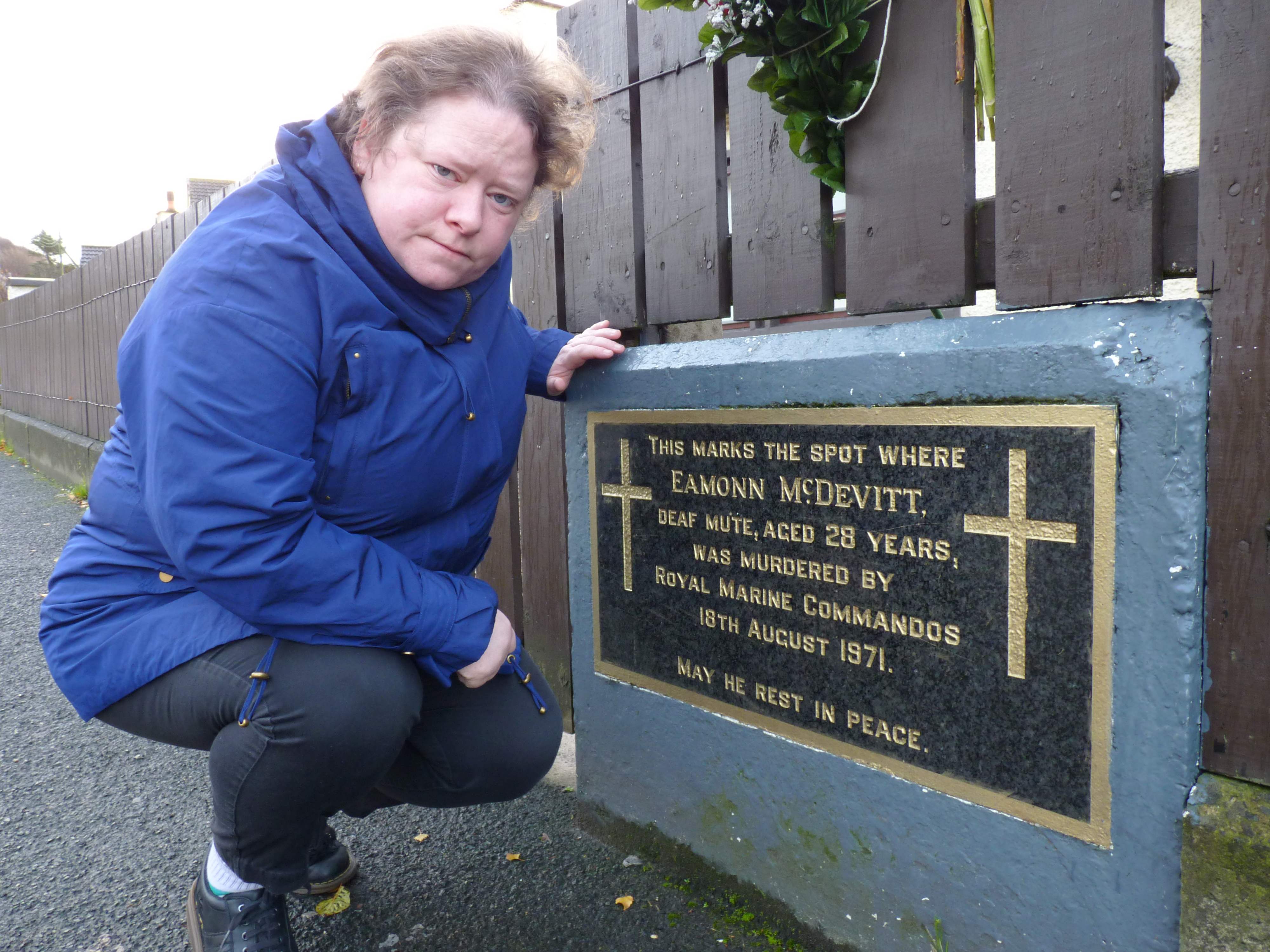
‘Hands On’ Presenter Alvean Jones at the plaque marking the spot where Eamonn McDevitt was killed by the British Army on 18th August 1971.
The family of a deaf man shot dead during the Troubles have renewed their calls to clear his name on an RTÉ programme airing this weekend.
by Rachel McLaughlin
Eamonn McDevitt (28), of Strabane, was shot dead by the British army during a riot on 18 August 1971.
British troops soldiers alleged he had been holding a gun, however many witness reports deny that he was armed.
Although Eamonn’s innocence was widely acknowledged in the local community, the McDevitt family have since been campaigning to have his name cleared in official records.
The RTÉ “Hands On” programme – being screened tomorrow at 12.30pm on RTE One – will examine the circumstances surrounding the death of the disabled man.
In the programme, former soldier Sammy McDevitt explains why he believes his brother Eamonn was shot.
“He was picked out because he was the most prominent target, the tallest target, and he could be seen above everybody else. The army policy at that time was: take the biggest target, the clearest target out, and everybody else will run,” he said.
Paul O’Connor, of the Pat Finucane Centre for human rights, said Eamonn’s case highlighted the need for an independently-led investigation body, as recommended from the recent Haass negotiation talks in Northern Ireland.
In his final draft proposal published on New Year’s Eve, Dr. Richard Haass suggested the establishment of a Historical Investigations Unit to re-examine the deaths of more than 3,000 people killed during the Troubles.
The PSNI-led Historical Enquiries Team had previously been investigating the death of Eamonn. However, his family challenged the draft report findings.
The HET has since been suspended pending an investigation of their operations and the examination of Eamonn’s case is in limbo, O’Connor said.
“They’re halfway through a process. There is no doubt that Eamonn was an innocent young man. His shooting could not be justified in any legal sense and I have no doubt that neither we, nor the family will ever give up until that is firmly, officially established as the absolute record of what happened that day in August 1971,” Mr O’Connor said.
Sammy McDevitt said that he and his family were not looking for any convictions to be made by the British Army. “All we want is an apology, both verbal and written – that they were wrong, and that they were sorry for what happened,” he said in “Hands On.”
Tags:






